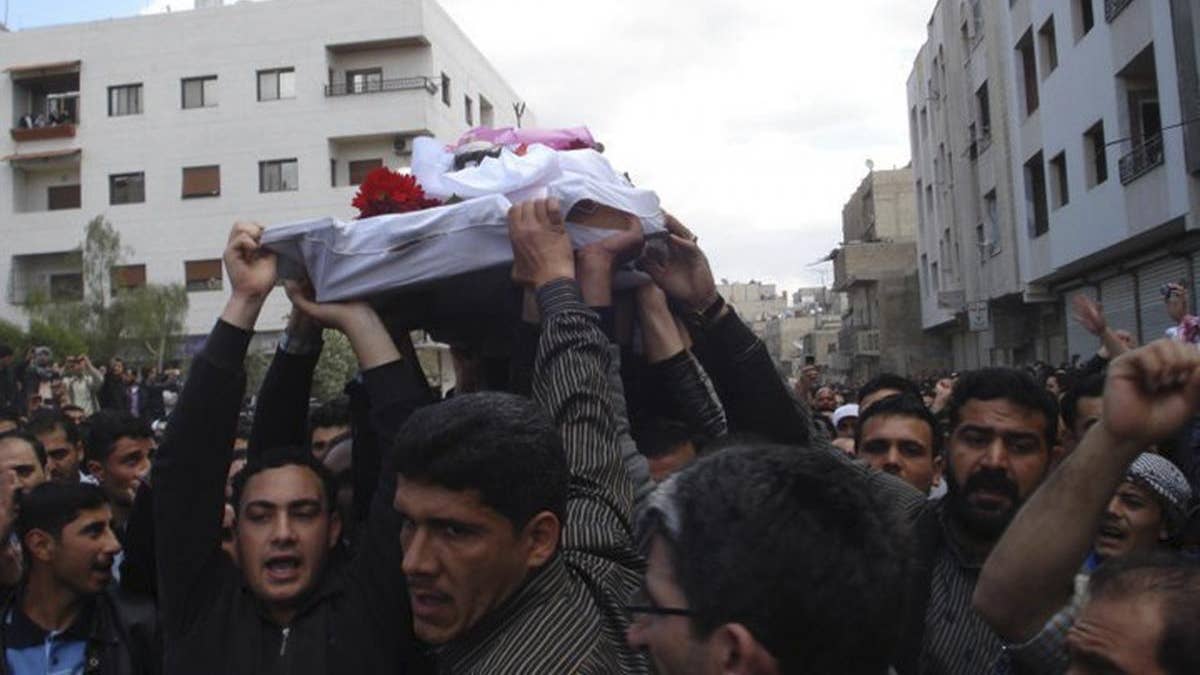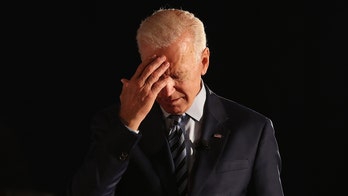
AP/citizen journalism image/Protesters carry the coffin of an activist who was killed
The violence in Syria echoes that of what happened in Libya, with dozens of civilian protestors being killed at the hand of a Middle East leader, yet the White House is defending its response so far to the unrest in Syria by arguing that the two scenarios are different.
White House Press Secretary Jay Carney said that Libya was a "unique situation" in that large portions of the country were out of control.
"We had a [Muammar al-]Qaddafi regime that was moving against its own people in a coordinated military fashion and was about to assault a very large city on the promise that it would show it -- the regime would show that city and its residents no mercy," Carney said of Libya.
He also says that with Libya, there was also an international consensus to act and support from the Arab League for action.
Human rights groups say that more than 300 people have been killed in Syria since the uprising began and more than two dozen demonstrators were either killed or wounded in Daraa just over the weekend.
Carney said they are continuing to look for ways to address the situation in Syria and increase pressure, including possible targeted sanctions.
Sanctions were one of the first moves the White House made against Libya also.
Sen. Joe Liberman, I-Conn., connected the two scenarios and said the U.S. should be doing more. "[I] really think we're not doing anywhere enough to support the freedom fighters in Syria and to oppose Assad. Everything that Gadhafi did in Libya that brought us into the fight there Assad is doing, particularly the slaughter of his own people. And, you know, the world leaders are making statements, but we're not doing anything," Lieberman said on CNN Sunday.
The White House also reversed a Bush administration policy and previously appointed an ambassador to Syria. U.S. policy has been to not have formal diplomatic relations with a country that is on the U.S. terror list, which Syria is.
President Obama issued a strongly worded statement Friday condemning the violence and actions of Syrian President Bashar al-Assad's regime.
Two months ago the uprising in Libya erupted after Qaddafi used force and violence against pro-democracy demonstrators. The United States sent in aircraft to help enforce a U.N. no-fly zone and just last week sent in armed drones.
Obama has not yet said that confidence in Assad is gone, however he has said that about Qaddafi.
The White House supports the removal of Qaddafi, but it says the U.S. is not seeking "military options" to carry that out. The administration also does not consider the U.S. at war with Libya.
NATO forces are currently bombing Qaddafi's compound, but initial reports say he was not injured in the blasts.




